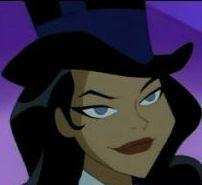The Book of Ballads
Charles Vess and various others
Hey, look! It's not a webcomic!
Not only is The Book of Ballads not a webcomic, it's also nothing like really any of the comics I've reviewed here so far. It doesn't have a continuing story, and nothing in it connects to any other comics. It's a fully standalone book of short pieces. I figured it'd fit into this week's set of post because all of the stories in it are, as you may have guessed from the title, taken from ballads.
Charles Vess is one of my favorite comic book artists. You may have heard of him, particularly if you're a fan of Neil Gaiman. He did the Fairyland section of the original Book of Magic and was the other half of Stardust--not the recent movie, but the illustrated novel it's based on. He does extraordinary work, and The Book of Ballads is one of his babies.
Basically, what Vess did was get a bunch of awesome comics writers to do scripts based on various traditional English ballads, and then he illustrated them. The first one, "The False Knight on the Road," is actually by Neil Gaiman. Other ballads used are "Alison Gross," "Barbara Allen," and "King Henry," among others.
They're all well-written stories, and of course the art is beautiful, but the little thing that makes this book even more awesome is the appendix. At the end of the book, Vess has included a list of all the ballads used, with information about where you can find various recordings of them. For example, Steeleye Span, one of my favorite music groups, recorded an amazing version of "Alison Gross," and that is listed.
It seemed right to include this review in this week's posts because of the whole icon theme. A ballad is not necessarily iconic, but ballads and their themes are in the same family as icons. They're songs because it's easy to remember songs, and they tell stories that people felt, for one reason or another, should be remembered. Ballads are part of the collective memory of the English and Celtic cultures.
If you'd like to dispute the important of ballads, I will tell you do one thing. Find the old Loony Toons episodes where they did Robin Hood stories. One of them has Porky Pig in it as Friar Tuck, and what is he doing when we first see him? He's singing "Barbara Allen," probably one of the most famous English ballads and also one of the ones used in this book.
This is a cool book. You should read it. It may not be like anything you're used to, but it's interesting, and makes for good bite-sized bits of reading.
Subscribe to:
Post Comments (Atom)

No comments:
Post a Comment